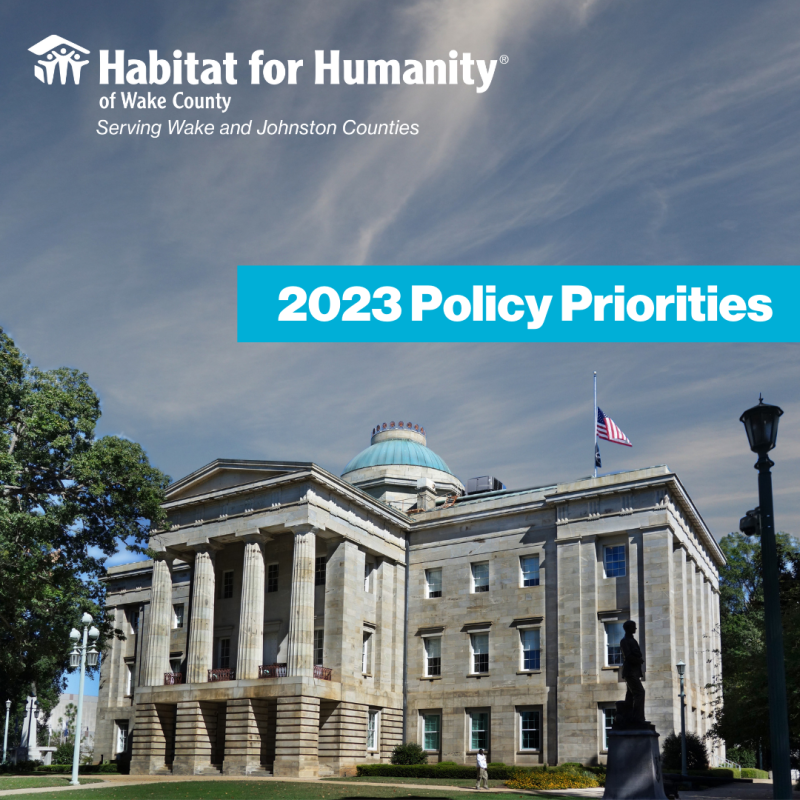
Everyone deserves the personal and economic stability of a safe, affordable home.
For a home to be affordable, housing expenses must be less than 30 percent of a family's income. In Wake and Johnston counties, one in four families spends too much of their income on housing, leaving little left over for other necessities like food, transportation, education and healthcare.
As the economic impacts of COVID-19 continue to unfold, the number of families struggling to make ends meet will only grow, creating an even more urgent need for better housing solutions.
We must also acknowledge that historic discrimination in U.S. housing policy has been a driver of inequalities that persist today. We have a responsibility to raise awareness about the continuing effects of these policies and advocate for opportunities that increase affordable housing for all.
This year, we’re advocating for:
1. Housing cost solutions for homeowners to gain long term affordability
Housing costs like property taxes and insurance have risen dramatically in recent years. Property taxes are important in ensuring our community has the services and infrastructure for quality of life. Yet we also want to ensure homeowners can afford to stay in their homes long-term, especially in gentrifying neighborhoods. Providing housing cost assistance can help ensure residents are not priced out.
2. Equitable land use policy that ensures affordability as our area grows
Zoning and land use policies impact the location and type of housing that is built in our community. As our area grows, it’s important to adjust zoning codes to allow for a variety of housing options, such as townhomes, duplexes and cottage courts. To ensure housing equity, zoning changes should be made together with deep investments in affordable housing.
3. Equitable access to transit, including bus routes aligned with affordable housing and increased access to transportation options for Habitat homeowners
Housing and transportation costs make up half of the average household’s budget. Access to public transit results in greater economic opportunities for residents and can reduce transportation costs and commuting time, which are often substantial.
4. Policies that reduce the risk of displacement and support residents at the lowest income thresholds
As our area grows, residents with low incomes are at greater risk of being priced out and displaced from their homes. Affordability protections for existing residents, especially homeowners of color, and increased access to affordable rental housing are critical to ensure that residents with low incomes can access public transportation and other services.
5. Bold investments in affordable housing and infrastructure by local decision makers
There is a great need for more affordable housing in our area. Over the last few years, home prices and rents have increased dramatically, pricing out new and existing residents. Bold investments in affordable housing and local infrastructure are critical to ensuring everyone has an affordable home and a community where everyone can thrive.
6. Expedited review and permitting for affordable housing projects
Acquiring permits and approvals for home construction can be lengthy, impacting a project’s schedule and costs. Expediting this process for affordable housing projects can reduce costs and encourage the development of more affordable units.
In addition to these policies, we support the advocacy of Habitat for Humanity International and Habitat North Carolina to increase affordable housing at the state and national level.